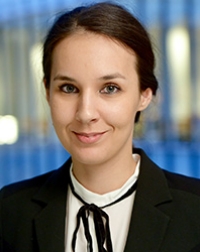Our experience
Education transformation: a new cooperative approach to learning in Hungary

The Audi Hungaria Faculty of Automotive Engineering at the Széchenyi István University (Győr, Hungary) wanted to transform the traditional curricula of the Vehicle Engineering BSc degree into an innovative, project based, cooperative learning programme.
PwC provided pedagogical, methodological and project management support for the programme transformation, ensured compliance with educational regulations, and prepared both academic staff and students to be successful in the reformed programme through extensive training.
Client:
Széchenyi István University, Audi Hungaria Faculty of Automotive Engineering
Country:
Hungary
Setting the scene
At Széchenyi István University, the Audi Hungaria Faculty of Automotive Engineering had a traditional approach to education. The teaching formats consisted of lectures combined with seminars and some practical training. With this approach, there was limited room to develop the skills and competences that the labor market requires and students were less prepared to become proactive drivers of collaboration, development and innovation in their chosen field.
Recognising the gaps, the faculty wanted to transform their approach to enhance the quality of education and align with student preferences. In particular, they wanted to introduce hands-on practical experience and cooperative project based learning to prepare students for their careers.

How we helped
As a pilot for the faculty’s wider transformation, PwC worked with the Audi Hungaria Faculty between May and September 2020 to transform the Vehicle Engineering BSc program for first year students entering the university in September 2020.
PwC designed a new curriculum that consists of only cooperative projects. This innovative curriculum requires students to work in teams to solve consecutive engineering challenges (projects). Each individual is responsible for a dedicated subtask but also must collaborate to ensure the overall success of the team. Traditional lectures are replaced by small, targeted “learning molecules'' that provide the knowledge required for solving the engineering project at hand. Academic staff provide mentoring throughout the projects and teach the learning molecules.
PwC also led the quality assurance for implementing the innovative methodology. We provided extensive training for both students and academic staff to support their success with the new teaching and learning approach, and to enable them to adapt the approach to other curricula.
We were lucky to have met the PwC Hungary Education Team who provided us with the necessary education methodology and quality assurance which allowed us to create a system that fosters student curiosity and motivation for learning.
Impact and potential
The 18 students who completed the first semester indicated satisfaction with the new approach to learning, and the majority of teachers reported better learning outcomes and personal success in teaching.
The new methodology allows students to acquire and improve cooperation, communication, critical thinking, leadership and problem solving skills that prepare them for real life professional challenges. Students that participate in the programme will enter the labor market equipped with skills that employers look for and possess the competences that make them more likely to succeed both in their professional and personal lives. The reformed programme prepares students to play an active role in society and become the driving force in the local and wider economy.
The methodology has the potential to be extended to additional programs at the university in the future. The new approach could also have a wider impact: other higher education institutions may adopt similar curricula after seeing the tangible benefits compared to traditional education.

Csilla Stéger
Senior Manager, PwC Hungary

Bernadett Nádasy
Senior Consultant, PwC Hungary

Evelin Kovács
Consultant, PwC Hungary
Contact us



CEE Director of Brand and Communications, PwC Central and Eastern Europe
Tel: +48 519 506 633


